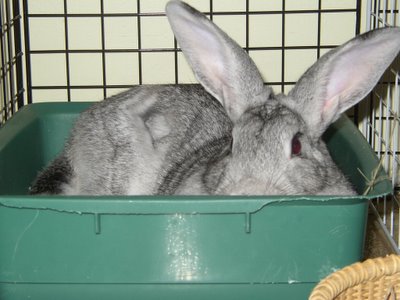7th Decade Thoughts
Thoughts about books, politics and history (personal and otherwise), pictures I've taken and pictures I've edited.
Saturday, December 31, 2005
Friday, December 30, 2005


Thursday, December 29, 2005
More on Didion's The Year of Magical Thinking
I love Didion's writing and for some reason, though I knew, had not paid much attention to what this one was about. I usually don't care; she's worth reading no matter what she writes about. When I began, I remembered. Since my husband died 3 years ago, I was a little bit afraid to read, though I knew her thoughts would be important ones. I stopped to think--and remember-- just now when, shortly before he died, Didion described how her husband had insisted that they go to
Something like this happened to me, only it was
We had been walking in the park daily--or at least a few times a week--for months and I could not help but see it got more and more difficult for Alex. We would park at Rice University just off of Main Street and walk across Main and Fannin to the park and then walk the same route every time. They were building the train tracks and station then--the first of a municipal rail system--and walking over and around the construction became more and more of a problem. Alex had to sit down and rest more often and the last stretch back, out of the park, across two busy streets, with construction, was very difficult. It had become harder and harder to chat as we walked. His total concentration was, I could see, on staying upright and finishing the walk. Any sign that I could help, either physically (he outweighed me by more than 100 lbs so there wouldn't have been much) or emotionally, was rejected. He was proud and determined and couldn't bear that anyone, even me, see his weakness. How could we travel abroad?
I called the airline and reserved front bulkhead seats with a letter I'd got from the neuroologist. We'd chosen a 4 star hotel that was centrally located. I still assumed we'd cancel at the last minute. I was convinced that Alex was determined to go since he thought he was giving me a gift I really wanted. I didn't want to go if it was difficult for him. The last day, I finally said--after numerous hints didn't work--that maybe we should put this off, that I understood it would be difficult for him and we could have a good time at home. His answer told me that HE really wanted to go.
We went. It was difficult. The seat they gave us had more room but it was beside him, not in front where it would help. It was a 10 hour flight. When we landed he went instantly to the bathroom and was gone for so long I got scared something had happened.
One of the first things he wanted to do was find a gym. At the hotel they directed us to one in
The next day we set out for the new Tate Modern Gallery. The subway Alex managed pretty well as long as I knew where we were going and we didn't waste any steps, but we went to Blackfriars and had to cross the bridge which was icy in spots and then walk further down the riverside than I'd anticipated. We got there and went immediately to the coffee shop. Then Alex decided to take a taxi back to the hotel. He insisted I stay. He wanted to read.
We found a funny little restaurant in an 18th century store front on
On New Year's Day we went to
The Observatory was crowded since it was free for the holiday. You were expected to follow the tour. At one point Alex sat down on a window sill and said there was no way he could follow the group to the Royal Astronomers' room on top and that all he wanted to see were
On the train back to Gatwick on the way home, I forced Alex to take the only seat in the car and went to sit on the luggage at the rear of the car because I knew he couldn't stand to sit while I stood. He was a big, strong man and didn't look disabled.... (Later I wanted to kill the flight attendants who wanted us to give up a bulkhead seat to a couple with an infant. There was no way it was harder for them to manage in three seats than for Alex to sit with another seat in front of him. But he looked perfectly healthy.) On the train, I watched the familiar route back to Gatwick--one I'd done dozens of times—sort of teary since I was afraid we wouldn't do this trip again. Alex had got advice from the taxi driver on another place to see 18th century clocks and he wrote it down for next time.
When I was a kid we had a
A Nostalgic Bit
There’s a current article in Foreign Affairs that suggests a new kind of “trusteeship” for failed states might be in order. The most likely candidate was
In my day,
It was common to hear in those days—I was in
In those days I knew little of politics, nothing of money policy or political infighting and accepted what I heard at face value: that Milton Margai (a graduate of the school where I taught incidentally) had been a great African statesman and that
But I also remember the opposition party very clearly—probably because I lived in Brookfields, across the road from
Years later—probably 93 or 94—I was on a flight from
Monday, December 26, 2005

Love this picture. It was taken last summer while a friend and I ate lunch at a restaurant with tables on a pier. The waiter had to caution us not to feed the gulls or they wouldn't stay off the table or out of the food! The ship in the background is one of the tall ships you see around at various historical events, the Elissa of Galveston, TX.



 TITLE: The Year of Magical Thinking
TITLE: The Year of Magical ThinkingAUTHOR: Joan Didion
DATE OF PUBLICATION: 2005
GENRE: Memoir
RATING: 10 out of 10
This is a really great book. Didion writes of her own experience during the year following the death of her husband, novelist John Gregory Dunne, as well as dealing with her daughter's serious illness. I probably identified with her more than most since I've also gone through the death of a husband and some prolonged eqposure to ICUs and the medical establishments, both with my husband and when my daughter developed amniotic embolism last March during childbirth. (She had a healthy child but was in danger herself and on life support for a few days.)
Didion's writing is magical. I read the essays in Slouching toward Bethlehem, published originally in 1968, over and over again when I first discovered them. For years I taught essays like California Dreaming ("This is a story about love and death in the golden land...[and]...the revelation that the dream was teaching the dreamer how to live" and On Keeping a Notebook ("The impulse to write things down is a peculiarly compulsive one, inexplicable to those who do not share it, useful only accidentally, only secondarily, in the way that any compulsion tries to justify itself" to students who never quite got why I raved so at her prose. If ever I had a writing mentor it was Didion.
This one is profound. Understated as everything she writes is understated. The result is a bigger big bang when you get the emotion hiding just beneath the surface. One hospital official described her as a "cool customer" the night her husband died of a massive heart attack. Little did he know.
 This is 9 month old Isadora. I have a feeling that she's going to be like my daughter (her mother) and recognizable in baby pictures. Some kids are "generic babies" and some have their own look from day one. Isadora's look includes an expressive mouth--fun when she's making faces--and intense blue eyes. We're wondering if the eyes will be blue permanently--both parents have brown eyes but one each of their parents have blue eyes. Isadora's mother was blue-eyed till she was two.
This is 9 month old Isadora. I have a feeling that she's going to be like my daughter (her mother) and recognizable in baby pictures. Some kids are "generic babies" and some have their own look from day one. Isadora's look includes an expressive mouth--fun when she's making faces--and intense blue eyes. We're wondering if the eyes will be blue permanently--both parents have brown eyes but one each of their parents have blue eyes. Isadora's mother was blue-eyed till she was two. 
 Children's pictures are so much fun. I take millions of pictures of my grandchildren and then play with them in PhotoShop. This one is of 6-year old Lydia, taken I think at the zoo. She's tiny for her age but has a very expressive face. The essence shows through even when I used some filters to make it look more like a painting.
Children's pictures are so much fun. I take millions of pictures of my grandchildren and then play with them in PhotoShop. This one is of 6-year old Lydia, taken I think at the zoo. She's tiny for her age but has a very expressive face. The essence shows through even when I used some filters to make it look more like a painting. 







